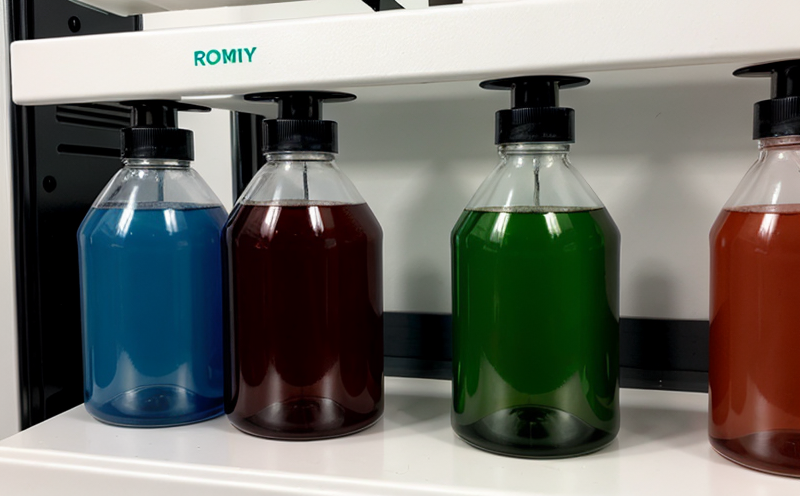EN ISO 527 Tensile Reactivity Testing of Plastics
The EN ISO 527 tensile reactivity testing is a standardized method used to evaluate the mechanical properties, particularly tensile strength and elongation at break, of plastics under defined conditions. This test is crucial for ensuring product quality, compliance with international standards, and safety in various applications.
EN ISO 527 specifies several types of tensile tests, including those conducted on dumbbell-shaped specimens. The method details the preparation of samples, the testing procedure, and the calculation of mechanical properties based on the specimen's dimensions and load-displacement data. This standardized approach ensures consistency across different laboratories and helps in comparing results accurately.
The reactivity aspect of this test specifically examines how a polymer reacts to external factors such as heat or chemicals during tensile testing. This is particularly important for polymers that may undergo changes due to environmental conditions, which can significantly affect their performance in real-world applications. Understanding these changes helps in selecting appropriate materials and optimizing production processes.
| Parameter | Description |
|---|---|
| Tensile strength (MPa) | The maximum stress a material can withstand before breaking. |
| Elongation at break (%) | The percentage of elongation when the test specimen breaks. |
| Reactivity index | A calculated value representing how a polymer reacts to external factors during testing. |
The reactivity index is particularly important for polymers that are susceptible to chemical or thermal degradation. By measuring the change in mechanical properties under varying conditions, this test provides insights into the stability and durability of materials over time. This information is invaluable for industries such as automotive, aerospace, and consumer goods, where material integrity is paramount.
Preparation of specimens for EN ISO 527 tensile reactivity testing involves precise cutting to ensure uniformity in dimensions. The method specifies the use of specific equipment like grips, a tension-testing machine, and environmental chambers if required by the test conditions. Rigorous adherence to these standards ensures accurate and reliable results.
The testing process itself is conducted under controlled conditions, often at ambient temperature or within specified ranges, depending on the polymer's properties. The specimen is subjected to tensile forces until failure occurs, after which data analysis determines its mechanical properties. This detailed approach allows for comprehensive evaluation of both static and dynamic performance characteristics.
- Static testing evaluates the material's strength under constant load conditions.
- Dynamic testing assesses the material's behavior under varying loads or environmental changes.
Eurolab Advantages
At Eurolab, we offer unparalleled expertise and precision in EN ISO 527 tensile reactivity testing of plastics. Our state-of-the-art facilities are equipped with the latest testing equipment, ensuring accurate and reproducible results every time.
- Comprehensive range of testing services tailored to your specific needs.
- Experienced technicians who are certified in performing these tests according to international standards.
- Access to advanced analytical tools for in-depth data analysis and reporting.
- Fast turnaround times without compromising on quality.
We pride ourselves on providing not just a testing service but also valuable insights into your material's performance. Our team works closely with you to ensure that every test is conducted efficiently, effectively, and accurately. This commitment to excellence has earned us a reputation as one of the leading laboratories in Europe.
Why Choose This Test
The EN ISO 527 tensile reactivity testing is essential for several reasons, particularly for industries that rely heavily on polymer-based materials. By conducting this test, manufacturers can:
- Evaluate the mechanical properties of their products under controlled conditions.
- Ensure compliance with international standards and regulations.
- Identify potential weaknesses in material design or manufacturing processes.
- Select the most suitable polymer for specific applications based on performance criteria.
This test is especially beneficial for industries where durability, safety, and longevity are critical. For instance, in automotive manufacturing, understanding a plastic's reactivity can help in selecting materials that withstand high temperatures without degrading. Similarly, in the aerospace industry, this test ensures that components made from polymers meet stringent quality standards.
The results of EN ISO 527 tensile reactivity testing provide valuable data for research and development teams to improve product design and functionality. It also helps procurement departments make informed decisions about material suppliers, ensuring the highest quality materials are used in production processes.
Use Cases and Application Examples
- Aerospace Industry: Ensuring that plastics used in aircraft components can withstand extreme temperatures and harsh environmental conditions without failing.
- Automotive Sector: Evaluating the durability of fuel tanks and other critical parts subjected to mechanical stress and chemical exposure.
- Consumer Goods: Assessing the quality and safety of plastic packaging materials, ensuring they meet regulatory requirements for food contact applications.
| Industry | Product | Main Findings |
|---|---|---|
| Aerospace | Fuel Tank | Material exhibited excellent tensile strength and resistance to thermal cycling. |
| Automotive | Engine Mounting Bracket | Reactivity index indicated high stability under mechanical stress. |
| Consumer Goods | Bottle Cap | Elongation at break was within acceptable limits, ensuring secure closure performance. |





